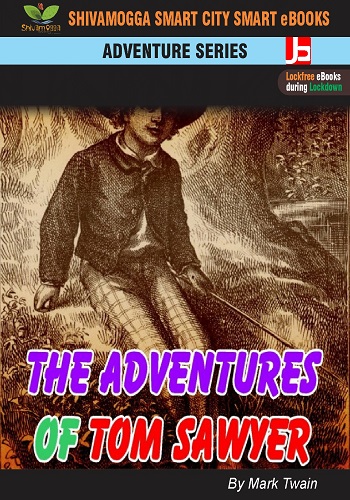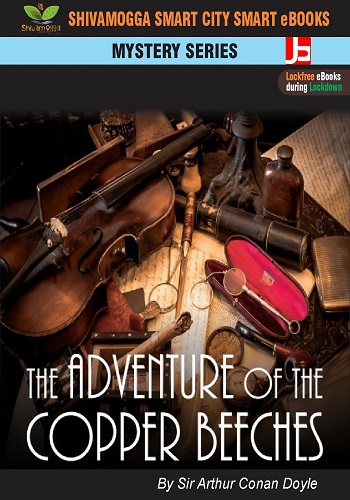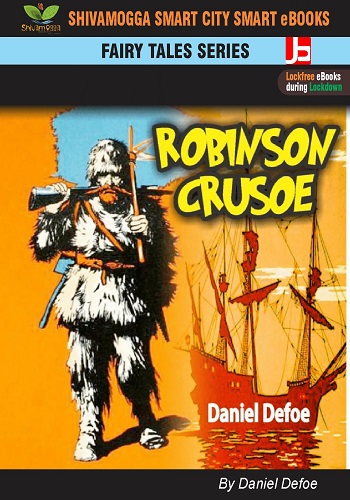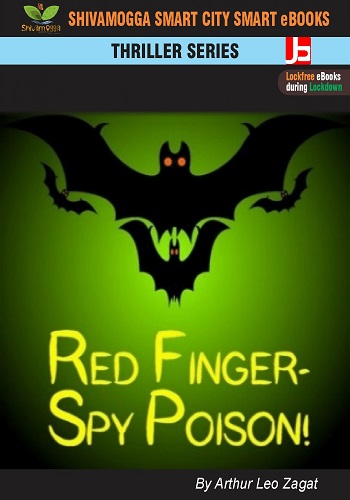-
 The Adventure of the Sussex Vampire, written by British author Arthur Conan Doyle, is one of 12 Sherlock Holmes stories collected between 1921 and 1927 as The Case-Book of Sherlock Holmes. It was first published in the January 1924 issues of The Strand Magazine in London and Hearst's International Magazine in New York.
The Adventure of the Sussex Vampire, written by British author Arthur Conan Doyle, is one of 12 Sherlock Holmes stories collected between 1921 and 1927 as The Case-Book of Sherlock Holmes. It was first published in the January 1924 issues of The Strand Magazine in London and Hearst's International Magazine in New York. -
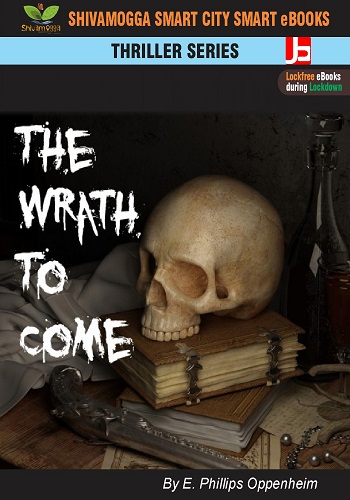 The mystery by E. Phillips Oppenheim starts out in the Sierra Nevada mountains, 500 miles from San Francisco, at a gold mining camp. Bryan came to America from England, chasing a man who may have papers which explain Bryan's mysterious origins. Enter heroine, the beautiful orphan Myra Mercier who is arriving to the camp where women are not allowed. Murder and mayhem ensue before the pair escapes to San Francisco. Bryan abandons Myra and travels back to England alone, where he takes up residence in the country, near the home of Lady Helen, the ward of Lord Wessemer. Bryan seeks to improve himself, and his status, in order to win the hand of the beautiful, but cold, Lady Helen. Finally, Myra makes her way to England as a actress, and Bryan decide who to wed.
The mystery by E. Phillips Oppenheim starts out in the Sierra Nevada mountains, 500 miles from San Francisco, at a gold mining camp. Bryan came to America from England, chasing a man who may have papers which explain Bryan's mysterious origins. Enter heroine, the beautiful orphan Myra Mercier who is arriving to the camp where women are not allowed. Murder and mayhem ensue before the pair escapes to San Francisco. Bryan abandons Myra and travels back to England alone, where he takes up residence in the country, near the home of Lady Helen, the ward of Lord Wessemer. Bryan seeks to improve himself, and his status, in order to win the hand of the beautiful, but cold, Lady Helen. Finally, Myra makes her way to England as a actress, and Bryan decide who to wed. -
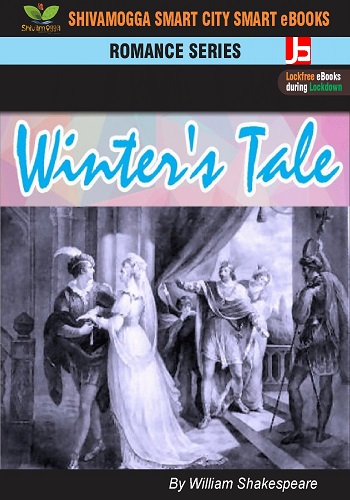 The Winter's Tale is a play by William Shakespeare originally published in the First Folio of 1623. Although it was grouped among the comedies, many modern editors have relabelled the play as one of Shakespeare's late romances. Some critics consider it to be one of Shakespeare's "problem plays" because the first three acts are filled with intense psychological drama, while the last two acts are comedic and supply a happy ending.
The Winter's Tale is a play by William Shakespeare originally published in the First Folio of 1623. Although it was grouped among the comedies, many modern editors have relabelled the play as one of Shakespeare's late romances. Some critics consider it to be one of Shakespeare's "problem plays" because the first three acts are filled with intense psychological drama, while the last two acts are comedic and supply a happy ending. -
 In the scriptures and the chronicles of the League of the Long Bow, or fellowship of foolish persons doing impossible things, it is recorded that Owen Hood, the lawyer, and his friend Crane, the retired Colonel, were partaking one afternoon of a sort of picnic on the river-island that had been the first scene of a certain romantic incident in the life of the former, the burden of reading about which has fallen upon the readers in other days. Suffice it to say that the island had been devoted by Mr. Hood to his hobby of angling, and that the meal then in progress was a somewhat early interruption of the same leisurely pursuit. The two old cronies had a third companion, who, though considerably younger, was not only a companion but a friend. He was a light-haired, lively young man, with rather a wild eye, known by the name of Pierce, whose wedding to the daughter of the innkeeper of the Blue Boar the others had only recently attended.
In the scriptures and the chronicles of the League of the Long Bow, or fellowship of foolish persons doing impossible things, it is recorded that Owen Hood, the lawyer, and his friend Crane, the retired Colonel, were partaking one afternoon of a sort of picnic on the river-island that had been the first scene of a certain romantic incident in the life of the former, the burden of reading about which has fallen upon the readers in other days. Suffice it to say that the island had been devoted by Mr. Hood to his hobby of angling, and that the meal then in progress was a somewhat early interruption of the same leisurely pursuit. The two old cronies had a third companion, who, though considerably younger, was not only a companion but a friend. He was a light-haired, lively young man, with rather a wild eye, known by the name of Pierce, whose wedding to the daughter of the innkeeper of the Blue Boar the others had only recently attended. -
 While the word “gentlemen” suggests that its heroes are adults, The Two Gentlemen of Verona is more intelligible if we think of them as boys, leaving home for the first time. One has a crush on a girl, Julia, though he hasn’t yet told her. Sent to court to learn to be “perfect gentlemen,” Valentine and Proteus are derailed by their attraction to Sylvia, the ruler’s daughter. Valentine’s mental denseness does not deter Sylvia from returning his love, but he is caught, and banished, when he tries to elope with her. Proteus’s desire for Sylvia wipes out his former love, leading him into despicable acts that win scorn from Sylvia and wound Julia, who has pursued him disguised as a boy. When Sylvia follows Valentine into banishment, Proteus follows Sylvia, and Julia follows Proteus, the stage is set for a disturbing ending. But the stage is also set for the “gentlemen” to take small steps toward maturity.
While the word “gentlemen” suggests that its heroes are adults, The Two Gentlemen of Verona is more intelligible if we think of them as boys, leaving home for the first time. One has a crush on a girl, Julia, though he hasn’t yet told her. Sent to court to learn to be “perfect gentlemen,” Valentine and Proteus are derailed by their attraction to Sylvia, the ruler’s daughter. Valentine’s mental denseness does not deter Sylvia from returning his love, but he is caught, and banished, when he tries to elope with her. Proteus’s desire for Sylvia wipes out his former love, leading him into despicable acts that win scorn from Sylvia and wound Julia, who has pursued him disguised as a boy. When Sylvia follows Valentine into banishment, Proteus follows Sylvia, and Julia follows Proteus, the stage is set for a disturbing ending. But the stage is also set for the “gentlemen” to take small steps toward maturity. -
 Narrated by Jim Hawkins as an old man, this adaptation relays all the horrors of his childhood adventures. Retaining all the qualities of Robert Louis Stevenson's famous tale of pirates, ships and buried treasure, this adaptation vividly brings characters such as Long John Silver, Ben Gunn and Blind Pew to life.
Narrated by Jim Hawkins as an old man, this adaptation relays all the horrors of his childhood adventures. Retaining all the qualities of Robert Louis Stevenson's famous tale of pirates, ships and buried treasure, this adaptation vividly brings characters such as Long John Silver, Ben Gunn and Blind Pew to life. -
 "And why Tom Tiddler's ground?" said the Traveller. "Because he scatters halfpence to Tramps and such-like," returned the Landlord, "and of course they pick 'em up. And this being done on his own land (which it is his own land, you observe, and were his family's before him), why it is but regarding the halfpence as gold and silver, and turning the ownership of the property a bit round your finger, and there you have the name of the children's game complete. And it's appropriate too," said the Landlord, with his favourite action of stooping a little, to look across the table out of window at vacancy, under the window-blind which was half drawn down. "Leastwise it has been so considered by many gentlemen which have partook of chops and tea in the present humble parlour."
"And why Tom Tiddler's ground?" said the Traveller. "Because he scatters halfpence to Tramps and such-like," returned the Landlord, "and of course they pick 'em up. And this being done on his own land (which it is his own land, you observe, and were his family's before him), why it is but regarding the halfpence as gold and silver, and turning the ownership of the property a bit round your finger, and there you have the name of the children's game complete. And it's appropriate too," said the Landlord, with his favourite action of stooping a little, to look across the table out of window at vacancy, under the window-blind which was half drawn down. "Leastwise it has been so considered by many gentlemen which have partook of chops and tea in the present humble parlour." -
 The Tempest has Romantics elements of both tragedy and comedy. The Tempest is one of two of Shakespeare’s works that is set on an island. The action takes place over the course of one day. Prospero, the rightful Duke of Milan, has been exiled to the island by his brother Antonio who had usurped his title twelve years before. Antonio was able to achieve this with the help of Alonso, the King of Naples. Prospero lives on the island with his fifteen year old daughter Miranda.
The Tempest has Romantics elements of both tragedy and comedy. The Tempest is one of two of Shakespeare’s works that is set on an island. The action takes place over the course of one day. Prospero, the rightful Duke of Milan, has been exiled to the island by his brother Antonio who had usurped his title twelve years before. Antonio was able to achieve this with the help of Alonso, the King of Naples. Prospero lives on the island with his fifteen year old daughter Miranda. -
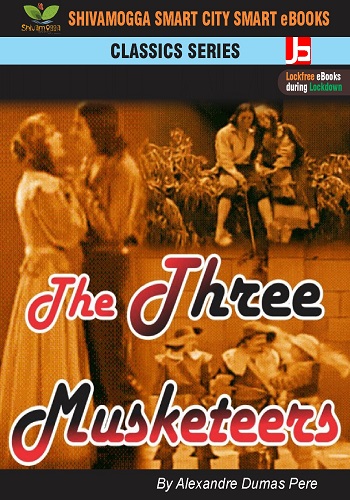 The Three Musketeers is one of the most famous historical novels ever written. It is also one of the world's greatest historical adventure stories, and its heroes have become symbols for the spirit of youth, daring, and comradeship. The action takes place at the court of Louis XIII, where the musketeers, Athos, Porthos, and Aramis, with their companion, the headstrong d'Artagnan, are engaged in a battle against Richelieu, the King's minister, and the beautiful, unscrupulous spy, Milady. Behind the flashing blades and bravura, in this first adventure of the Musketeers, Dumas explores the eternal conflict between good and evil.
The Three Musketeers is one of the most famous historical novels ever written. It is also one of the world's greatest historical adventure stories, and its heroes have become symbols for the spirit of youth, daring, and comradeship. The action takes place at the court of Louis XIII, where the musketeers, Athos, Porthos, and Aramis, with their companion, the headstrong d'Artagnan, are engaged in a battle against Richelieu, the King's minister, and the beautiful, unscrupulous spy, Milady. Behind the flashing blades and bravura, in this first adventure of the Musketeers, Dumas explores the eternal conflict between good and evil. -
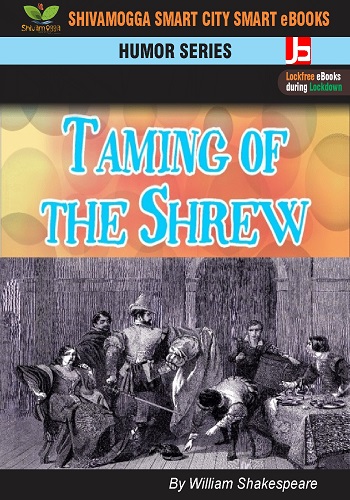 Love and wit conquer all in Shakespeare's sparkling comedy of self-delusion and disguise. Padua holds many suitors for the hand of fair Bianca, but Bianca may not be married until her spinster sister, Kate, is wed. Could any man be rash enough to take on Kate? The witty adventurer Petruchio undertakes the task. While he sets about transforming Kate from foul-tempered termagant to loving wife, young Lucentio and his clever servant
Love and wit conquer all in Shakespeare's sparkling comedy of self-delusion and disguise. Padua holds many suitors for the hand of fair Bianca, but Bianca may not be married until her spinster sister, Kate, is wed. Could any man be rash enough to take on Kate? The witty adventurer Petruchio undertakes the task. While he sets about transforming Kate from foul-tempered termagant to loving wife, young Lucentio and his clever servant -
 A collection of rare ghosts and horror stories by the brothers of one of the finest writers of the genre, E. F. Benson. The Benson brothers – Arthur Christopher, Edward Frederic and Robert Hugh – were one of the most extraordinary and prolific literary families, between them writing more than 150 books. Arthur alone left four million words of diary, although his most lasting legacy is the words to Elgar’s Land of Hope and Glory , while Fred is acknowledged as one of the finest writers of Edwardian supernatural fiction: the name E. F. Benson is mentioned in the same breath as other greats such as M. R. James and H. R. Wakefield. In fact, all three brothers wrote ghost stories, although the work of Arthur and Hugh in this field has long been overshadowed by their brother’s success. Now the best supernatural tales of A. C. and R. H. Benson have been gathered into one volume by anthologist Hugh Lamb, whose introduction examines the lives and writings of these two complex and fascinating men.
A collection of rare ghosts and horror stories by the brothers of one of the finest writers of the genre, E. F. Benson. The Benson brothers – Arthur Christopher, Edward Frederic and Robert Hugh – were one of the most extraordinary and prolific literary families, between them writing more than 150 books. Arthur alone left four million words of diary, although his most lasting legacy is the words to Elgar’s Land of Hope and Glory , while Fred is acknowledged as one of the finest writers of Edwardian supernatural fiction: the name E. F. Benson is mentioned in the same breath as other greats such as M. R. James and H. R. Wakefield. In fact, all three brothers wrote ghost stories, although the work of Arthur and Hugh in this field has long been overshadowed by their brother’s success. Now the best supernatural tales of A. C. and R. H. Benson have been gathered into one volume by anthologist Hugh Lamb, whose introduction examines the lives and writings of these two complex and fascinating men. -

EVEN the brilliance of the morning sun and the crisp, tangy morning breeze, could not make the bookstall-lined Fourth Avenue block other than a sluggish back-eddy of the city's flood. Grey men dwelt sleepily here among their grey books; men and books equally withdrawn from life. Elsewhere, the eager day was beginning for thousands of school children, stenographers and clerks, laborers and brokers, shopkeepers and mechanics. Here the night's sleep yawned only into a waking drowse, a desultory dealing in tattered volumes, a browsing among out-dated magazines.
-

The young minister and the elderly skipper discussed the subject of marriage in a shabby antique room of small size, which had the appearance of having been used to more aristocratic cornpany. The ’dark-oak panelled walls, the grotesquely-carved Ceiling-beams, the Dutch-tiled fire-place, with its ungainly brass dogs, and the deep slanting embrasure of the lozenge-paned casement, suggested Georgian beaux and belles dancing buckram minutes, or at least hard-riding country squires plotting Jacobite restoration. But these happenings were in the long-ago, but this stately Essex manor-house had declined woefully from its high estate, and now sheltered a rough and ready mariner, who camped, rather than dwelt, under its roof.
-
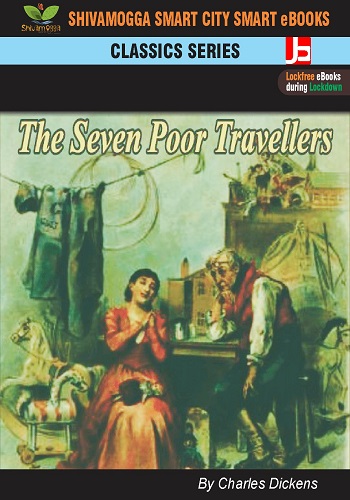 A short and inspirational work by Charles Dickens written as a Christmas story. Outshined by Dickens much more well known Christmas story, this short story has received scant notice. Yet I found it most delightful and comforting and can heartily recommend it. Written in the first person, Dickens tell of being a "poor traveller," and discovering a humble inn during his travels. Set up as a charitable hostel by a gentlemen deceased over a century previously, the inn offers to "six poor traveller's," true in heart, free lodging for one night plus enough money to purchase a simple meal. After satisfying himself of the bona fides of this charitable work, the "seventh poor traveller," as Dickens refers to the narrator, determines to contribute his own gift to his fellow "traveller's," it being Christmas Eve. Securing a sumptuous meal for the holy occasion, and preparing his own secret recipe of wassail, he shares a most satisfying Christmas Eve meal with his fellows, topping off the night with a personal story that befits a Christ-like life of humble service to the meanest among us. The story told, and following activities, serve to illustrate well the concept Dickens wishes to drive home, which is that at best we are all "poor traveller's" together in this life, and make the best of it all by sharing with a true heart whatever good and honest fare comes our way. Without the burden of judging harshly those whom we encounter who seem beneath our station, true happiness may be achieved before we, too, depart this veil of tears.
A short and inspirational work by Charles Dickens written as a Christmas story. Outshined by Dickens much more well known Christmas story, this short story has received scant notice. Yet I found it most delightful and comforting and can heartily recommend it. Written in the first person, Dickens tell of being a "poor traveller," and discovering a humble inn during his travels. Set up as a charitable hostel by a gentlemen deceased over a century previously, the inn offers to "six poor traveller's," true in heart, free lodging for one night plus enough money to purchase a simple meal. After satisfying himself of the bona fides of this charitable work, the "seventh poor traveller," as Dickens refers to the narrator, determines to contribute his own gift to his fellow "traveller's," it being Christmas Eve. Securing a sumptuous meal for the holy occasion, and preparing his own secret recipe of wassail, he shares a most satisfying Christmas Eve meal with his fellows, topping off the night with a personal story that befits a Christ-like life of humble service to the meanest among us. The story told, and following activities, serve to illustrate well the concept Dickens wishes to drive home, which is that at best we are all "poor traveller's" together in this life, and make the best of it all by sharing with a true heart whatever good and honest fare comes our way. Without the burden of judging harshly those whom we encounter who seem beneath our station, true happiness may be achieved before we, too, depart this veil of tears. -
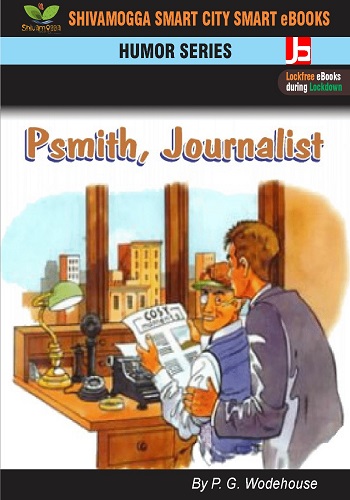 The story begins with Psmith accompanying his fellow student Mike to New York on a cricketing tour. Through high spirits and force of personality, Psmith takes charge of a minor periodical, and becomes embroiled in a scandal involving slum landlords, boxing and gangsters – the story displays a strong social conscience, rare in Wodehouse's generally light-hearted works.
The story begins with Psmith accompanying his fellow student Mike to New York on a cricketing tour. Through high spirits and force of personality, Psmith takes charge of a minor periodical, and becomes embroiled in a scandal involving slum landlords, boxing and gangsters – the story displays a strong social conscience, rare in Wodehouse's generally light-hearted works. -
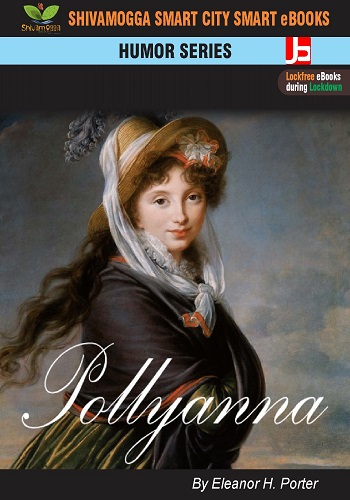 Pollyanna Whittier, is a young orphan who goes to live in Beldingsville, Vermont, with her wealthy but stern Aunt Polly. Pollyanna's philosophy of life centers on what she calls "The Glad Game", an optimistic attitude she learned from her father. The game consists of finding something to be glad about in every situation. It was one of the best theater plays with a four act comedy
Pollyanna Whittier, is a young orphan who goes to live in Beldingsville, Vermont, with her wealthy but stern Aunt Polly. Pollyanna's philosophy of life centers on what she calls "The Glad Game", an optimistic attitude she learned from her father. The game consists of finding something to be glad about in every situation. It was one of the best theater plays with a four act comedy -
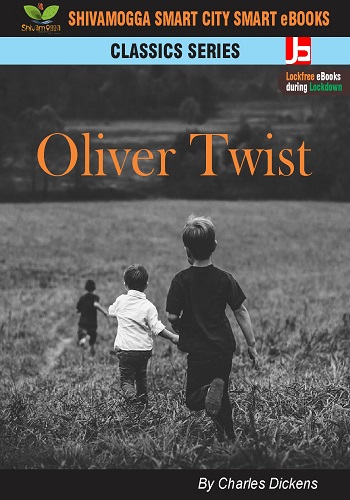 This carefully crafted ebook: "OLIVER TWIST (Illustrated Edition)” is formatted for your eReader with a functional and detailed table of contents. Oliver Twist is an orphan boy who starts his life in a workhouse and then gets sold into apprenticeship with an undertaker. He escapes from there and travels to London, where he meets the Artful Dodger, a member of a gang of juvenile pickpockets led by the elderly criminal, Fagin. Oliver Twist is notable for its unromantic portrayal by Dickens of criminals and their sordid lives, as well as for exposing the cruel treatment of the many orphans in London in the mid-19th century.
This carefully crafted ebook: "OLIVER TWIST (Illustrated Edition)” is formatted for your eReader with a functional and detailed table of contents. Oliver Twist is an orphan boy who starts his life in a workhouse and then gets sold into apprenticeship with an undertaker. He escapes from there and travels to London, where he meets the Artful Dodger, a member of a gang of juvenile pickpockets led by the elderly criminal, Fagin. Oliver Twist is notable for its unromantic portrayal by Dickens of criminals and their sordid lives, as well as for exposing the cruel treatment of the many orphans in London in the mid-19th century. -
 C. Auguste Dupin is a man in Paris who solves the mysterious brutal murder of two women. Numerous witnesses heard a suspect, though no one agrees on what language was spoken. At the murder scene, Dupin finds a hair that does not appear to be human. As the first true detective in fiction, the Dupin character established many literary devices which would be used in future fictional detectives including Sherlock Holmes and Hercule Poirot. Many later characters, for example, follow Poe's model of the brilliant detective, his personal friend who serves as narrator, and the final revelation being presented before the reasoning that leads up to it.
C. Auguste Dupin is a man in Paris who solves the mysterious brutal murder of two women. Numerous witnesses heard a suspect, though no one agrees on what language was spoken. At the murder scene, Dupin finds a hair that does not appear to be human. As the first true detective in fiction, the Dupin character established many literary devices which would be used in future fictional detectives including Sherlock Holmes and Hercule Poirot. Many later characters, for example, follow Poe's model of the brilliant detective, his personal friend who serves as narrator, and the final revelation being presented before the reasoning that leads up to it. -
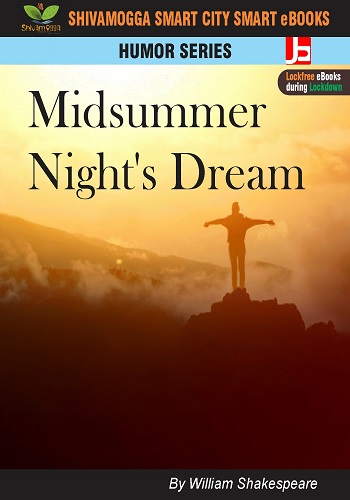 Two pairs of young lovers fall asleep in an ancient Athenian forest and wake to find themselves in the middle of a good deed gone wrong. A Midsummer Night's Dream conjures up a fairyland inhabited by well-intentioned sprites whose magic leads to farcical confusion. The mirthful tangle of mistaken identities and misplaced affections develops and resolves in the glorious poetry of England's greatest playwright.Shakespeare's fantastical comedy has enchanted audiences
Two pairs of young lovers fall asleep in an ancient Athenian forest and wake to find themselves in the middle of a good deed gone wrong. A Midsummer Night's Dream conjures up a fairyland inhabited by well-intentioned sprites whose magic leads to farcical confusion. The mirthful tangle of mistaken identities and misplaced affections develops and resolves in the glorious poetry of England's greatest playwright.Shakespeare's fantastical comedy has enchanted audiences -
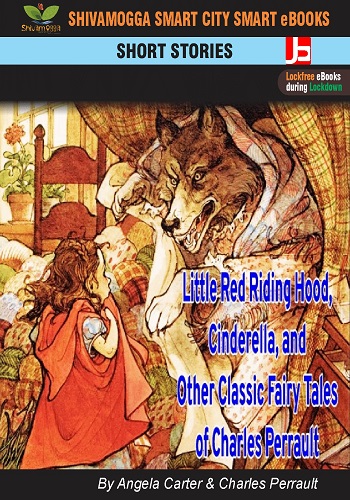 Little Red Riding Hood. Cinderella. Sleeping Beauty. Bluebeard. The Fairies. Many classic fairy tale characters might not have survived into the present were it not for Charles Perrault, a seventeenth-century French civil servant who rescued them from the oral tradition and committed them to paper. Three centuries later, Angela Carter, widely regarded as one of England’s most imaginative writers, adapted them for contemporary readers. The result is a cornucopia of fantastic characters and timeless adventures, stylishly retold by a modern literary visionary.
Little Red Riding Hood. Cinderella. Sleeping Beauty. Bluebeard. The Fairies. Many classic fairy tale characters might not have survived into the present were it not for Charles Perrault, a seventeenth-century French civil servant who rescued them from the oral tradition and committed them to paper. Three centuries later, Angela Carter, widely regarded as one of England’s most imaginative writers, adapted them for contemporary readers. The result is a cornucopia of fantastic characters and timeless adventures, stylishly retold by a modern literary visionary. -
 Narnia: A magical land full of wonder and excitement. A place where you will meet Aslan, the bravest of lions, and a beautiful but wicked Witch. There are lots of other fabulous creatures too: giants and dwarfs and animals that talk. It all begins when four children -- Peter, Susan, Edmund, and Lucy -- discover a strange old wardrobe. Stepping inside, they find that it's stranger still, because behind all the fur coats there is a wondrous land of trees and mountains, all glistening with snow. The White Witch has spread an icy winter everywhere. Only Aslan can defeat her and reverse her wicked spell. The children must find the lion before it is too late. If they fail, the Witch will make them her prisoners forever. In the fifty years since it was written, The Lion, the Witch And the Wardrobe has become one of the great classics of children's literature. Now younger children can share the magical experience, stepping into a world of enchantment that will forever lure them back.
Narnia: A magical land full of wonder and excitement. A place where you will meet Aslan, the bravest of lions, and a beautiful but wicked Witch. There are lots of other fabulous creatures too: giants and dwarfs and animals that talk. It all begins when four children -- Peter, Susan, Edmund, and Lucy -- discover a strange old wardrobe. Stepping inside, they find that it's stranger still, because behind all the fur coats there is a wondrous land of trees and mountains, all glistening with snow. The White Witch has spread an icy winter everywhere. Only Aslan can defeat her and reverse her wicked spell. The children must find the lion before it is too late. If they fail, the Witch will make them her prisoners forever. In the fifty years since it was written, The Lion, the Witch And the Wardrobe has become one of the great classics of children's literature. Now younger children can share the magical experience, stepping into a world of enchantment that will forever lure them back. -
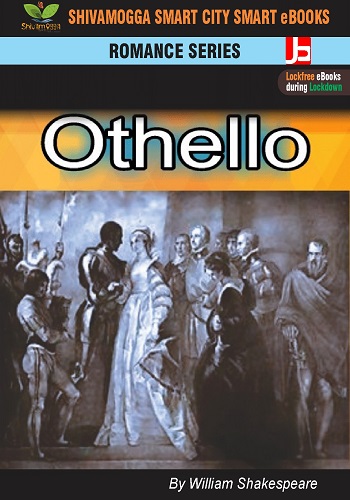 Othello (The Romance of Othello, the Moor of Venice) is a tragedy by William Shakespeare. It is based on the story Un Capitano Moro ("A Moorish Captain") by Cinthio (a disciple of Boccaccio's). The story revolves around its two central characters: Othello, a Moorish general in the Venetian army, and his treacherous ensign, Iago. Given its varied and enduring themes of racism, love, jealousy, betrayal, revenge, and repentance.
Othello (The Romance of Othello, the Moor of Venice) is a tragedy by William Shakespeare. It is based on the story Un Capitano Moro ("A Moorish Captain") by Cinthio (a disciple of Boccaccio's). The story revolves around its two central characters: Othello, a Moorish general in the Venetian army, and his treacherous ensign, Iago. Given its varied and enduring themes of racism, love, jealousy, betrayal, revenge, and repentance. -
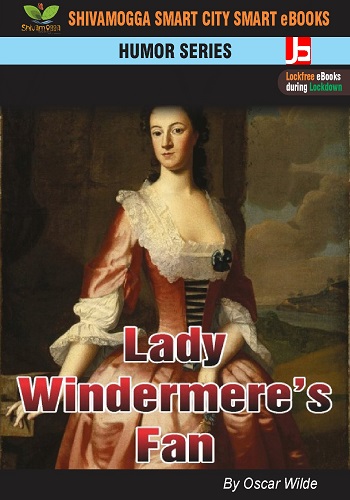 Lady Windermere's Fan, A Play About a Good Woman is a four-act comedy by Oscar Wilde, at the St James's Theatre in London. The story concerns Lady Windermere, who suspects that her husband is having an affair with another woman. She confronts him with it but although he denies it, he invites the other woman, Mrs Erlynne, to his wife's birthday ball. Angered by her husband's supposed unfaithfulness, Lady Windermere decides to leave her husband for another lover. After discovering what has transpired, Mrs Erlynne follows Lady Windermere and attempts to persuade her to return to her husband and in the course of this, Mrs Erlynne is discovered in a compromising position. It is then revealed Mrs Erlynne is Lady Windermere's mother, who abandoned her family twenty years before the time the play is set. Mrs Erlynne sacrifices herself and her reputation to save her daughter's marriage. Act I The play opens in the morning room of the Windermeres' residence in London. It is tea time and Lady Windermere--who is preparing for her coming of age birthday ball that evening--has a visit from a friend, Lord Darlington. She shows off her new fan: a present from her husband. She explains to Lord Darlington that she is upset over the compliments he continues to pay to her, revealing that she is a Puritan and has very particular views about what is acceptable in society. The Duchess of Berwick calls and Lord Darlington leaves shortly thereafter. The Duchess informs Lady Windermere that her husband may be betraying her marriage by making repeated visits to another woman, a Mrs Erlynne, and possibly giving her large sums of money. These rumours have been gossip among London society for quite a while, though seemingly this is the first Lady Windermere has heard about it. Following the departure of the Duchess, Lady Windermere decides to check her husband's bank book. She finds the book in a desk and sees that nothing appears amiss, though on returning she discovers a second bank book: one with a lock. After prying the lock open, she finds it lists large sums of money given to Mrs Erlynne. At this point, Lord Windermere enters and she confronts him. Though he cannot deny that he has had dealings with Mrs Erlynne, he states that he is not betraying Lady Windermere. He requests that she send Mrs Erlynne an invitation to her birthday ball that evening to help her back into society. When Lady Windermere refuses, he writes out an invitation himself. Lady Windermere makes clear her intention to cause a scene if Mrs Erlynne appears, to which Lord Windermere responds that it would be in her best interest not to do so. Lady Windermere leaves in disgust to prepare for the party, and Lord Windermere reveals in soliloquy that he is protecting Mrs Erlynne's true identity to save his wife extreme humiliation. What shall I do? I dare not tell her who this woman really is. The shame would kill her. -- Lord Windermere
Lady Windermere's Fan, A Play About a Good Woman is a four-act comedy by Oscar Wilde, at the St James's Theatre in London. The story concerns Lady Windermere, who suspects that her husband is having an affair with another woman. She confronts him with it but although he denies it, he invites the other woman, Mrs Erlynne, to his wife's birthday ball. Angered by her husband's supposed unfaithfulness, Lady Windermere decides to leave her husband for another lover. After discovering what has transpired, Mrs Erlynne follows Lady Windermere and attempts to persuade her to return to her husband and in the course of this, Mrs Erlynne is discovered in a compromising position. It is then revealed Mrs Erlynne is Lady Windermere's mother, who abandoned her family twenty years before the time the play is set. Mrs Erlynne sacrifices herself and her reputation to save her daughter's marriage. Act I The play opens in the morning room of the Windermeres' residence in London. It is tea time and Lady Windermere--who is preparing for her coming of age birthday ball that evening--has a visit from a friend, Lord Darlington. She shows off her new fan: a present from her husband. She explains to Lord Darlington that she is upset over the compliments he continues to pay to her, revealing that she is a Puritan and has very particular views about what is acceptable in society. The Duchess of Berwick calls and Lord Darlington leaves shortly thereafter. The Duchess informs Lady Windermere that her husband may be betraying her marriage by making repeated visits to another woman, a Mrs Erlynne, and possibly giving her large sums of money. These rumours have been gossip among London society for quite a while, though seemingly this is the first Lady Windermere has heard about it. Following the departure of the Duchess, Lady Windermere decides to check her husband's bank book. She finds the book in a desk and sees that nothing appears amiss, though on returning she discovers a second bank book: one with a lock. After prying the lock open, she finds it lists large sums of money given to Mrs Erlynne. At this point, Lord Windermere enters and she confronts him. Though he cannot deny that he has had dealings with Mrs Erlynne, he states that he is not betraying Lady Windermere. He requests that she send Mrs Erlynne an invitation to her birthday ball that evening to help her back into society. When Lady Windermere refuses, he writes out an invitation himself. Lady Windermere makes clear her intention to cause a scene if Mrs Erlynne appears, to which Lord Windermere responds that it would be in her best interest not to do so. Lady Windermere leaves in disgust to prepare for the party, and Lord Windermere reveals in soliloquy that he is protecting Mrs Erlynne's true identity to save his wife extreme humiliation. What shall I do? I dare not tell her who this woman really is. The shame would kill her. -- Lord Windermere -
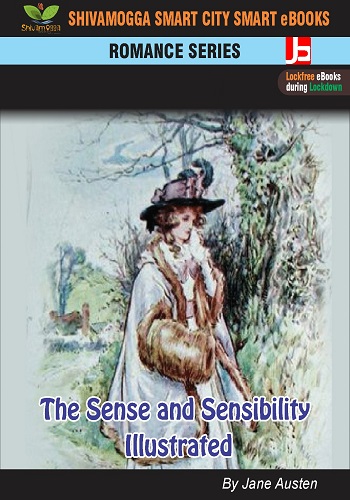 Jane Austen’s first published novel, Sense and Sensibility is a wonderfully entertaining tale of flirtation and folly that revolves around two starkly different sisters, Elinor and Marianne Dashwood. While Elinor is thoughtful, considerate, and calm, her younger sister is emotional and wildly romantic. Both are looking for a husband, but neither Elinor’s reason nor Marianne’s passion can lead them to perfect happiness—as Marianne falls for an unscrupulous rascal and Elinor becomes attached to a man who’s already engaged. Startling secrets, unexpected twists, and heartless betrayals interrupt the marriage games that follow. Filled with satiric wit and subtle characterizations, Sense and Sensibility teaches that true love requires a balance of reason and emotion.
Jane Austen’s first published novel, Sense and Sensibility is a wonderfully entertaining tale of flirtation and folly that revolves around two starkly different sisters, Elinor and Marianne Dashwood. While Elinor is thoughtful, considerate, and calm, her younger sister is emotional and wildly romantic. Both are looking for a husband, but neither Elinor’s reason nor Marianne’s passion can lead them to perfect happiness—as Marianne falls for an unscrupulous rascal and Elinor becomes attached to a man who’s already engaged. Startling secrets, unexpected twists, and heartless betrayals interrupt the marriage games that follow. Filled with satiric wit and subtle characterizations, Sense and Sensibility teaches that true love requires a balance of reason and emotion. -
 Beatrix Potter wrote and published it, the idea has been turned down by six commercial publishers. One year later finally, a editor discovered the great talent. Having seen a copy, Frederick Warne decided to publish ›Peter Rabbit‹, and within a year he already had to produce six editions to meet demand. This was the start of the most successful children's book series of all times.
Beatrix Potter wrote and published it, the idea has been turned down by six commercial publishers. One year later finally, a editor discovered the great talent. Having seen a copy, Frederick Warne decided to publish ›Peter Rabbit‹, and within a year he already had to produce six editions to meet demand. This was the start of the most successful children's book series of all times. -
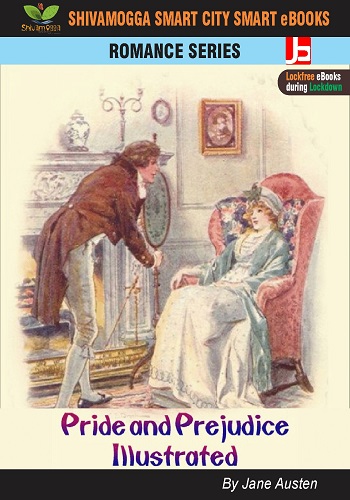 "It is a truth universally acknowledged, that a single man in possession of a good fortune, must be in want of a wife." And certainly what Melville did for whaling Austen does for marriage--tracing the intricacies (not to mention the economics) of 19th-century British rituals with a sure hand and an unblinking eye. As usual, Austen trains her sights on a country village and a few families--in this case, the Bennets, the Philips, and the Lucases. Into their midst comes Mr. Bingley, a single man of good fortune, and his friend, Mr. Darcy, who is even richer. Mrs. Bennet, who married above her station, sees their arrival as an opportunity to marry off at least one of her five daughters. Bingley is complaisant and easily charmed by the eldest Bennet girl, Jane; Darcy, however, is harder to please. Put off by Mrs. Bennet's vulgarity and the untoward behavior of the three younger daughters, he is unable to see the true worth of the older girls, Jane and Elizabeth. His excessive pride offends Lizzy, who is more than willing to believe the worst that other people have to say of him; when George Wickham, a soldier stationed in the village, does indeed have a discreditable tale to tell, his words fall on fertile ground. Having set up the central misunderstanding of the novel, Austen then brings in her cast of fascinating secondary characters: Mr. Collins, the sycophantic clergyman who aspires to Lizzy's hand but settles for her best friend, Charlotte, instead; Lady Catherine de Bourgh, Mr. Darcy's insufferably snobbish aunt; and the Gardiners, Jane and Elizabeth's low-born but noble-hearted aunt and uncle. Some of Austen's best comedy comes from mixing and matching these representatives of different classes and economic strata, demonstrating the hypocrisy at the heart of so many social interactions. And though the novel is rife with romantic misunderstandings, rejected proposals, disastrous elopements, and a requisite happy ending for those who deserve one, Austen never gets so carried away with the romance that she loses sight of the hard economic realities of 19th-century matrimonial maneuvering. Good marriages for penniless girls such as the Bennets are hard to come by, and even Lizzy, who comes to sincerely value Mr. Darcy, remarks when asked when she first began to love him: "It has been coming on so gradually, that I hardly know when it began. But I believe I must date it from my first seeing his beautiful grounds at Pemberley." She may be joking, but there's more than a little truth to her sentiment, as well. Jane Austen considered Elizabeth Bennet "as delightful a creature as ever appeared in print". Readers of Pride and Prejudice would be hard-pressed to disagree. --Alix Wilber
"It is a truth universally acknowledged, that a single man in possession of a good fortune, must be in want of a wife." And certainly what Melville did for whaling Austen does for marriage--tracing the intricacies (not to mention the economics) of 19th-century British rituals with a sure hand and an unblinking eye. As usual, Austen trains her sights on a country village and a few families--in this case, the Bennets, the Philips, and the Lucases. Into their midst comes Mr. Bingley, a single man of good fortune, and his friend, Mr. Darcy, who is even richer. Mrs. Bennet, who married above her station, sees their arrival as an opportunity to marry off at least one of her five daughters. Bingley is complaisant and easily charmed by the eldest Bennet girl, Jane; Darcy, however, is harder to please. Put off by Mrs. Bennet's vulgarity and the untoward behavior of the three younger daughters, he is unable to see the true worth of the older girls, Jane and Elizabeth. His excessive pride offends Lizzy, who is more than willing to believe the worst that other people have to say of him; when George Wickham, a soldier stationed in the village, does indeed have a discreditable tale to tell, his words fall on fertile ground. Having set up the central misunderstanding of the novel, Austen then brings in her cast of fascinating secondary characters: Mr. Collins, the sycophantic clergyman who aspires to Lizzy's hand but settles for her best friend, Charlotte, instead; Lady Catherine de Bourgh, Mr. Darcy's insufferably snobbish aunt; and the Gardiners, Jane and Elizabeth's low-born but noble-hearted aunt and uncle. Some of Austen's best comedy comes from mixing and matching these representatives of different classes and economic strata, demonstrating the hypocrisy at the heart of so many social interactions. And though the novel is rife with romantic misunderstandings, rejected proposals, disastrous elopements, and a requisite happy ending for those who deserve one, Austen never gets so carried away with the romance that she loses sight of the hard economic realities of 19th-century matrimonial maneuvering. Good marriages for penniless girls such as the Bennets are hard to come by, and even Lizzy, who comes to sincerely value Mr. Darcy, remarks when asked when she first began to love him: "It has been coming on so gradually, that I hardly know when it began. But I believe I must date it from my first seeing his beautiful grounds at Pemberley." She may be joking, but there's more than a little truth to her sentiment, as well. Jane Austen considered Elizabeth Bennet "as delightful a creature as ever appeared in print". Readers of Pride and Prejudice would be hard-pressed to disagree. --Alix Wilber -
 At Baskerville Hall on the grim moors of Devonshire, a legendary curse has apparently claimed one more victim. Sir Charles Baskerville has been found dead. There are no signs of violence, but his face is hideously distorted with terror. Years earlier, a hound-like beast with blazing eyes and dripping jaws was reported to have torn out the throat of Hugo Baskerville. Has the spectral destroyer struck again? More important, is Sir Henry Baskerville, younger heir to the estate, now in danger?Enter Sherlock Holmes, summoned to protect Sir Henry from the fate that has threatened the Baskerville family. As Holmes and Watson begin to investigate, a blood-chilling howl from the fog-shrouded edges of the great Grimpen Mire signals that the legendary hound of the Baskervilles is poised for yet another murderous attack. It has often been called the best detective story ever written. It remains a thrilling tale of suspense, must reading for every lover of detective fiction.
At Baskerville Hall on the grim moors of Devonshire, a legendary curse has apparently claimed one more victim. Sir Charles Baskerville has been found dead. There are no signs of violence, but his face is hideously distorted with terror. Years earlier, a hound-like beast with blazing eyes and dripping jaws was reported to have torn out the throat of Hugo Baskerville. Has the spectral destroyer struck again? More important, is Sir Henry Baskerville, younger heir to the estate, now in danger?Enter Sherlock Holmes, summoned to protect Sir Henry from the fate that has threatened the Baskerville family. As Holmes and Watson begin to investigate, a blood-chilling howl from the fog-shrouded edges of the great Grimpen Mire signals that the legendary hound of the Baskervilles is poised for yet another murderous attack. It has often been called the best detective story ever written. It remains a thrilling tale of suspense, must reading for every lover of detective fiction.



